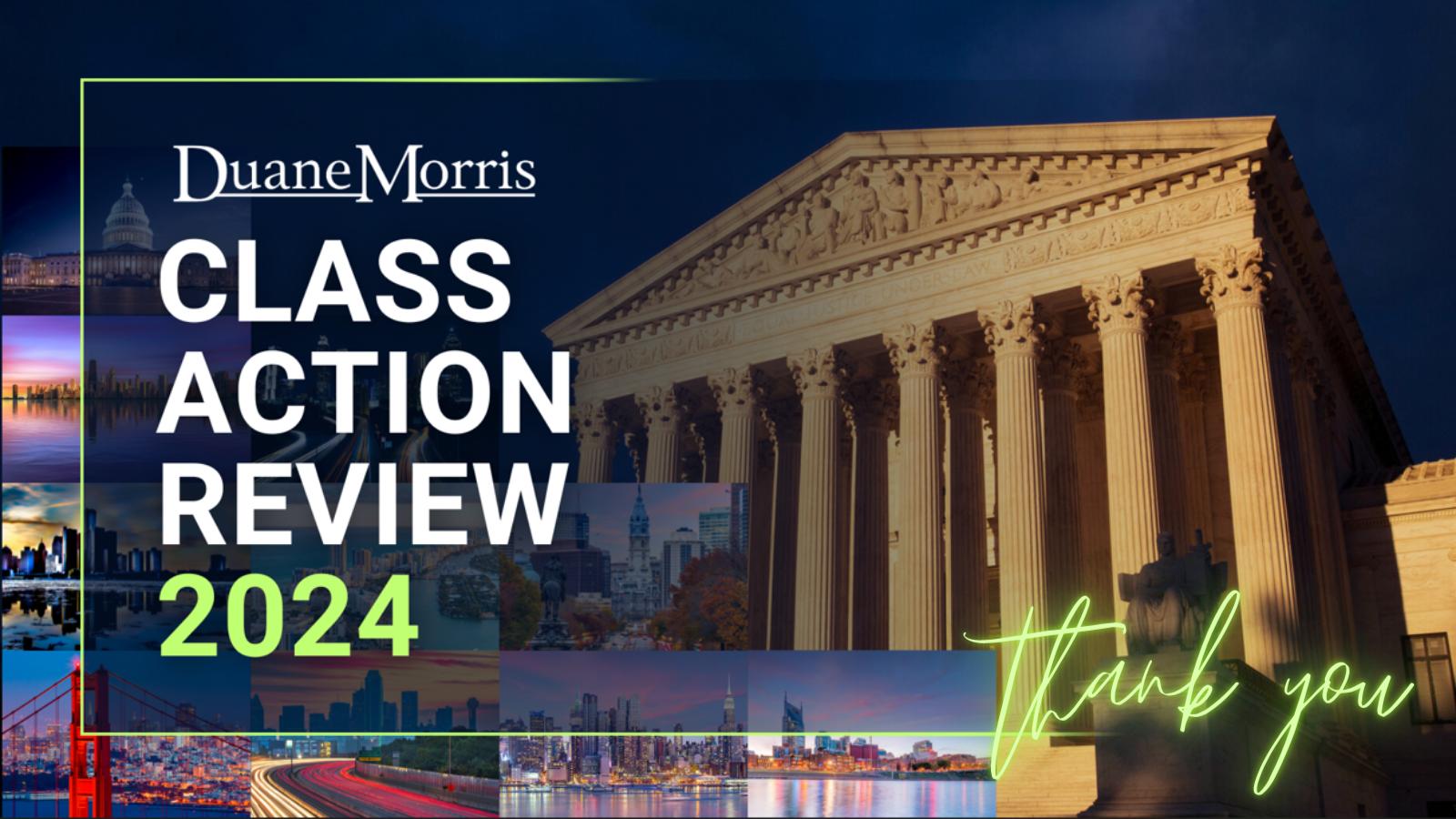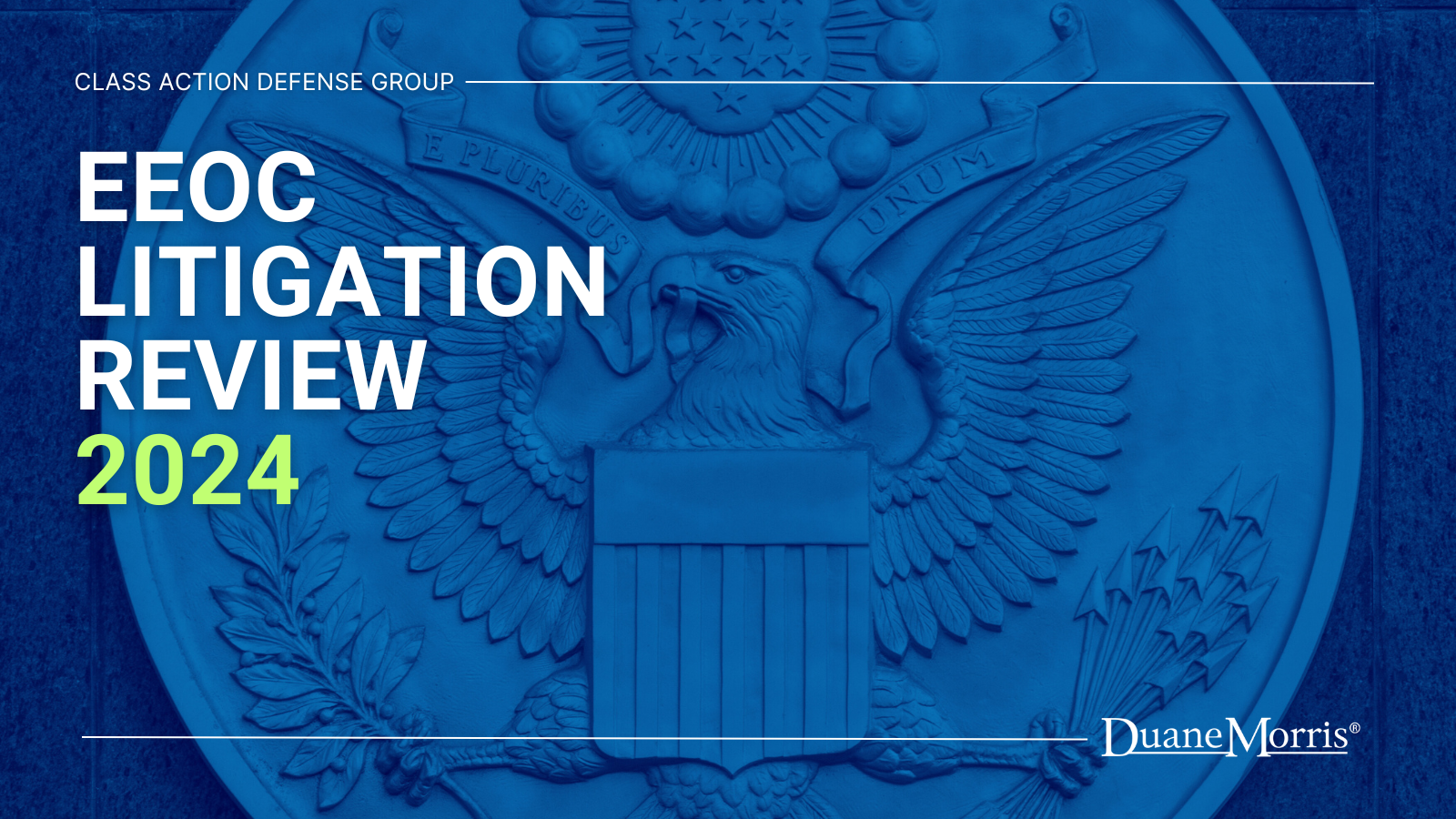 By Alex W. Karasik and Gerald L. Maatman, Jr.
By Alex W. Karasik and Gerald L. Maatman, Jr.
Duane Morris Takeaways: On February 1, 2024, a football fan filed a class action lawsuit against the New England Patriots in a Massachusetts federal court, alleging that the football team’s mobile app (the “App”) knowingly disclosed users’ location data and personal information to third-parties in alleged violation of the Video Privacy Protection Act (“VPPA”). This lawsuit marks the latest high-profile VPPA class action lawsuit filing, which have significantly spiked in the last two years.
Although the recent tide of VPPA class action court rulings has generally tipped in favor of defendants, the plaintiffs’ class action bar is still exploring novel theories to bring these high-stakes cases. Companies must therefore pay close attention to privacy-related issues involving mobile applications, including what data is collected and to whom it is transmitted.
The VPPA
Congress passed the VPPA in 1988. The statute imposes liability on, “[a] video tape service provider who knowingly discloses, to any person, personally identifiable information concerning any consumer of such provider.” 18 U.S.C. § 2710(b)(1). A “video tape service provider” is defined as “any person, engaged in the business, in or affecting interstate or foreign commerce, of rental, sale, or delivery of prerecorded video cassette tapes or similar audio visual materials.” Id. 3-4 (citations omitted). “Personally identifiable information” (“PII”) is defined as “information which identifies a person as having requested or obtained specific video materials or services from a video service provider.” Id. In essence, the statute purports to account for advancements in video-delivery technology by defining a “video tape service provider” broadly to include any business engaged in the “rental, sale, or delivery of prerecorded video cassette tapes or similar audio visual materials.” Id.
The New VPPA Class Action Lawsuit
Plaintiff alleges that he downloaded and installed the App to his mobile phone and regularly used it to access video content. Id. at 2. When downloading the App, users are presented with an option to sign into an existing account, create a new account, or continue without signing in by selecting “MAYBE LATER.” Id. at 4-5. Plaintiff alleges that consumers who select “MAYBE LATER” are not presented with the App’s Terms of Use or Privacy Policy. And even if users select “JOIN NOW”, they are redirected to a login screen where they have the option to log in, but are not required to view or assent to any terms of use or privacy policy unless they take additional steps to create an account. Id. at 5.
In terms of data collection, the lawsuit alleges that when a user opens a video on the App, the App sends the content type, video title, and a persistent identifier to the user’s device. The App then transmits to third parties the user’s information, including location (in geographical coordinates and altitude), advertising ID, and video content consumption. Id. at 6. According to the complaint, the New England Patriots allegedly leverage users’ geolocation so it can maximize advertising revenue and, to that end, uniquely identify its users. For Android software users, the complaint alleges that the Patriots unique advertising ID called an Android Advertising ID (“AAID”) for each of its users with third-parties, which enables a third party to track the user’s movements, habits, and activity on mobile applications. Id. at 10.
Accordingly, the lawsuit alleges that through the New England Patriots’ dissemination of consumers’ PII, third parties such as Google can collect and store billions of metrics and events and make it easier for clients to make data-driven decisions, and these reports are continuously updated and metrics are reported as they occur. Id at 16. Plaintiff seeks to represent a class defined as “All persons in the United States who used the Patriots App to watch videos and had their personally identifiable information — including but not limited to the videos they watched, their geolocation, and their unique advertising IDs — transmitted to one or more third parties.” Id. On behalf of the class, Plaintiff seeks an award of damages, including, but not limited to, actual, consequential, punitive, statutory, and nominal damages.
Implications For Businesses
This lawsuit represents another example of class action plaintiffs’ lawyers using traditional state and federal laws – including the long dormant VPPA – to seek relief for alleged privacy violations. In applying modern technologies to older laws like the VPPA (passed in 1988), courts have grappled with issues such as the determination of who qualifies as a “video tape service provider” or a “consumer” under the statute. It will be interesting to follow this lawsuit to see whether the Court follows the recent trend of courts dismissing VPPA class actions.
That said, this high-profile filing also suggests that companies should regularly update their online consent provisions as needed to specifically address the VPPA. Businesses that pro-actively implement compliance mechanisms will thank themselves later in terms of preventing class action litigation.
















